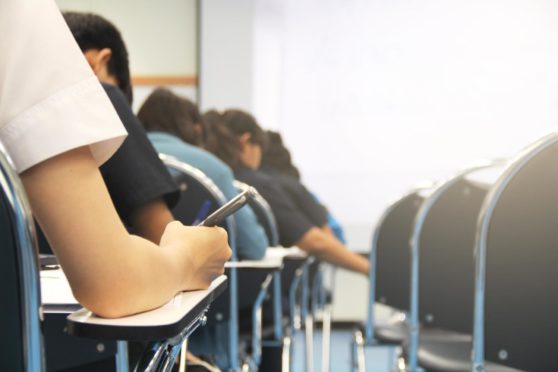Leading advisers to the Scottish Government are calling for a “pandemic-proof” transformation of Scottish education which could see the end of ‘outdated’ examinations.
A report published by the International Council of Education Advisers (ICEA) proposes profound changes to the education system and highlights the need to create a more resilient education system following the coronavirus pandemic.
The recommendations include a permanent shift towards continuous professional assessment, instead of traditional examinations.
The ICEA group, which was established in 2016 to advise the First Minister and Deputy First Minister on education policies and practices, backed the decision to cancel the 2021 exam diet earlier this month.
High school examinations are essentially an out of date 19th and 20th century tradition operating in a 21st century environment of teaching and learning.”
The report says: “High school examinations are essentially an out of date 19th and 20th century tradition operating in a 21st century environment of teaching and learning.”
Replacing exams with frequent teacher assessments would allow pupils more time for valuable feedback that would improve their skill, according to the experts.
“There may still be components of sit-down examinations, but if these are based on a wide menu of changing, problem-based questions, these can be taken and retaken like driving tests, as needed, throughout the year, rather than in a one-time, high-stress, win/lose moment”, they add.
The Scottish Government is also asked to consider digital inclusivity as part of the transformation, as up to a third of children needed learning materials because they had no access to internet or devices.
The coronavirus pandemic has exposed the fact that our educational systems are not universally designed.”
The poorest families in particular were disadvantaged by the pandemic and ICEA experts say providing pupils with a publicly accessible digital learning plan would not just help pupils learn during a pandemic, but would also reduce the attainment gap.
“The coronavirus pandemic has exposed the fact that our educational systems are not universally designed,” the report says.
“Whether they are centralised or decentralised, any disturbance of what is considered to be normal requires crisis-driven responses that are typically insufficient and that incur temporary and sometimes lasting harm as a result.”
The report, however, emphasises digital learning must be used as part of the physical school environment, not as a “replacement”, except in exceptional circumstances.
Deputy First Minister John Swinney said the Scottish Government will now consider the recommendations before publishing a response in the new year.
He said: “The International Education Advisers recognises the effort and resources going in to narrow attainment gaps and strengthen the teaching profession.
“It reinforces the issue of equity as the defining agenda of our time, says we have an excellent standing internationally and that Scottish education can be a ‘global standard bearer in a post-pandemic world.’
“That is no easy task and the report report provides a series of detailed recommendations to help us not just get back to normal, but to use the pandemic as an opportunity to develop a more resilient education system for the future.”

